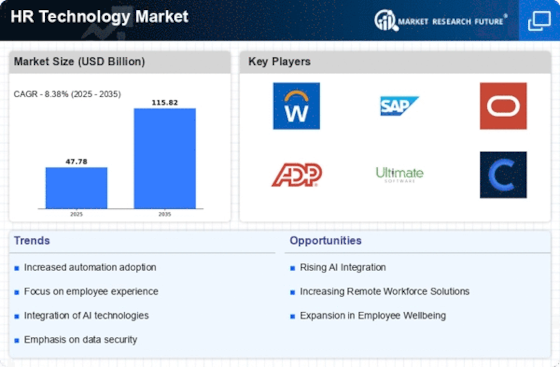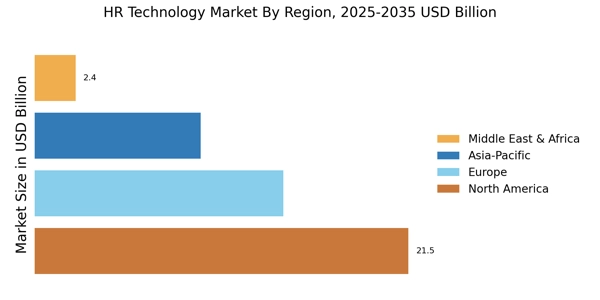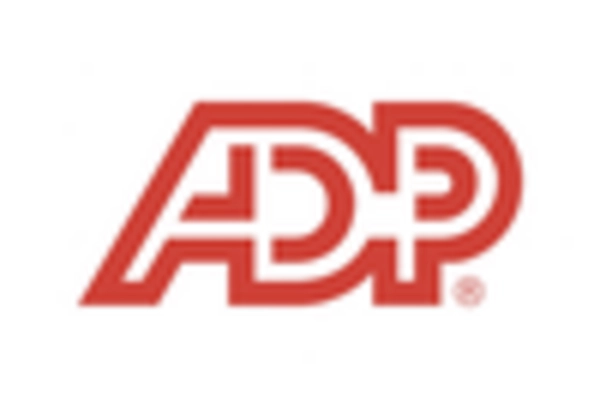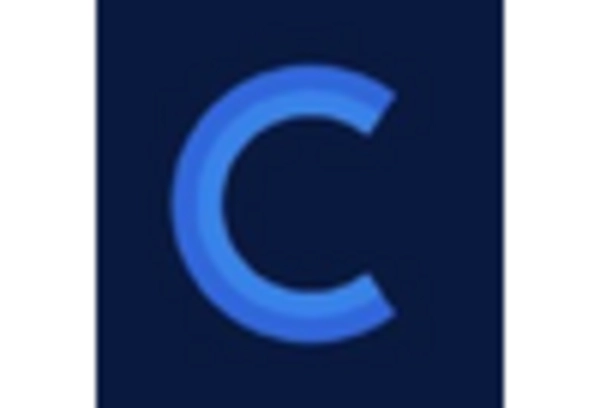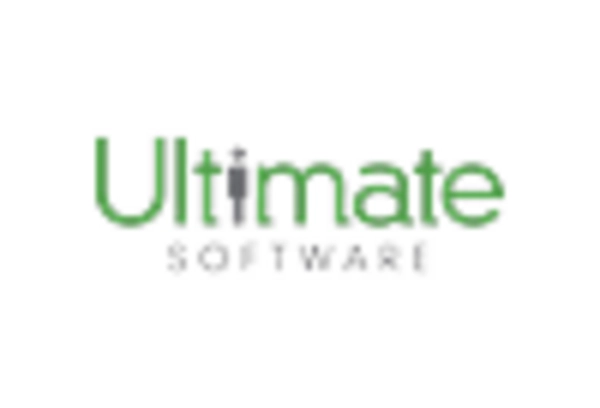Rise of Remote Work Solutions
The rise of remote work solutions is reshaping the HR Technology Market. As organizations adapt to flexible work arrangements, there is a growing need for technology that supports remote collaboration, performance management, and employee engagement. Recent statistics suggest that 70% of employees prefer remote work options, prompting companies to invest in HR technologies that facilitate this transition. This shift not only enhances employee satisfaction but also broadens the talent pool for organizations, allowing them to recruit from diverse geographical locations. Consequently, the demand for innovative remote work solutions within the HR Technology Market is expected to surge, driving further advancements in this sector.
Integration of Advanced Analytics
The integration of advanced analytics into the HR Technology Market is becoming increasingly prevalent. Organizations are leveraging data analytics to enhance their recruitment processes, employee engagement, and retention strategies. According to recent data, companies utilizing analytics in HR have reported a 30% increase in hiring efficiency. This trend indicates a shift towards data-driven decision-making, allowing HR professionals to make informed choices based on empirical evidence rather than intuition. As organizations continue to recognize the value of data, the demand for sophisticated analytics tools within the HR Technology Market is likely to grow, fostering a more strategic approach to human resource management.
Focus on Compliance and Risk Management
The focus on compliance and risk management is a critical driver in the HR Technology Market. Organizations are increasingly aware of the legal and regulatory requirements surrounding employment practices, necessitating robust HR solutions that ensure compliance. Recent data indicates that companies investing in compliance-focused HR technologies experience a 25% reduction in legal risks. This trend underscores the importance of integrating compliance features into HR systems, enabling organizations to navigate complex regulations effectively. As the landscape of employment law continues to evolve, the demand for compliance-oriented solutions within the HR Technology Market is likely to intensify, prompting vendors to innovate and enhance their offerings.
Emphasis on Learning and Development Technologies
The emphasis on learning and development technologies is gaining traction within the HR Technology Market. Organizations are increasingly investing in platforms that facilitate employee training and skill development, recognizing the correlation between employee growth and organizational success. Recent surveys indicate that companies prioritizing employee development report a 40% increase in employee retention rates. This trend reflects a broader understanding that continuous learning is essential for maintaining a competitive edge in the market. As a result, the demand for innovative learning management systems and development tools within the HR Technology Market is expected to rise, fostering a culture of lifelong learning.
Growing Importance of Employee Well-being Solutions
The growing importance of employee well-being solutions is emerging as a significant driver in the HR Technology Market. Organizations are increasingly recognizing the impact of employee well-being on productivity and overall business performance. Recent studies suggest that companies implementing well-being programs experience a 20% increase in employee engagement. This trend highlights the necessity for HR technologies that support mental health, work-life balance, and overall wellness initiatives. As the focus on employee well-being continues to gain momentum, the demand for comprehensive well-being solutions within the HR Technology Market is likely to expand, prompting vendors to develop innovative offerings that cater to this need.


